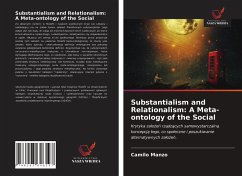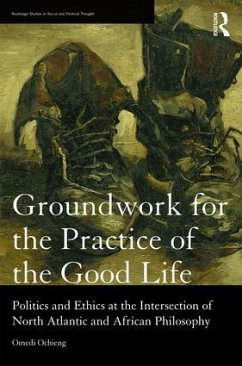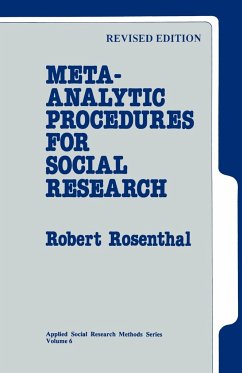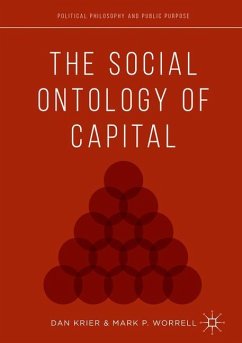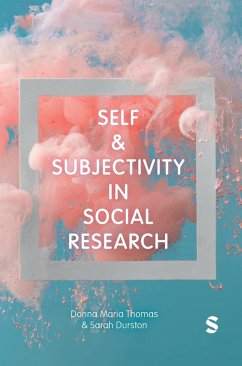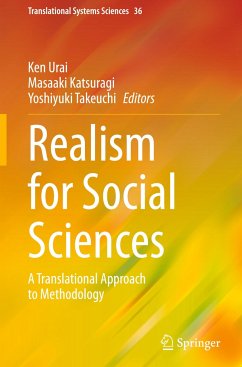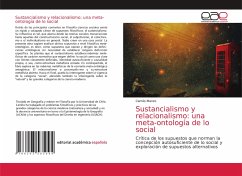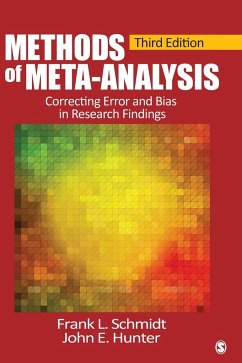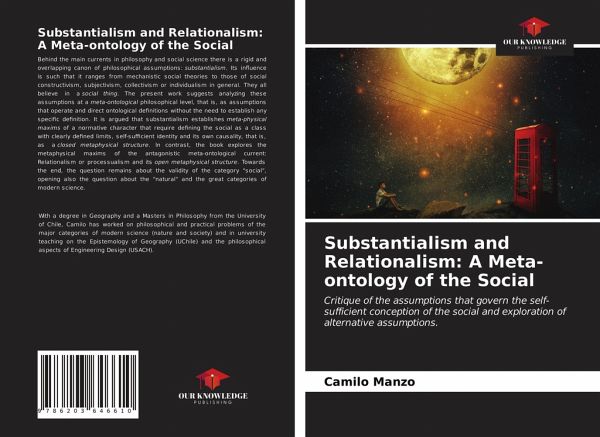
Substantialism and Relationalism: A Meta-ontology of the Social
Critique of the assumptions that govern the self-sufficient conception of the social and exploration of alternative assumptions.
Versandkostenfrei!
Versandfertig in 1-2 Wochen
36,99 €
inkl. MwSt.

PAYBACK Punkte
18 °P sammeln!
Behind the main currents in philosophy and social science there is a rigid and overlapping canon of philosophical assumptions: substantialism. Its influence is such that it ranges from mechanistic social theories to those of social constructivism, subjectivism, collectivism or individualism in general. They all believe in a social thing. The present work suggests analyzing these assumptions at a meta-ontological philosophical level, that is, as assumptions that operate and direct ontological definitions without the need to establish any specific definition. It is argued that substantialism est...
Behind the main currents in philosophy and social science there is a rigid and overlapping canon of philosophical assumptions: substantialism. Its influence is such that it ranges from mechanistic social theories to those of social constructivism, subjectivism, collectivism or individualism in general. They all believe in a social thing. The present work suggests analyzing these assumptions at a meta-ontological philosophical level, that is, as assumptions that operate and direct ontological definitions without the need to establish any specific definition. It is argued that substantialism establishes meta-physical maxims of a normative character that require defining the social as a class with clearly defined limits, self-sufficient identity and its own causality, that is, as a closed metaphysical structure. In contrast, the book explores the metaphysical maxims of the antagonistic meta-ontological current: Relationalism or processualism and its open metaphysical structure. Towards the end, the question remains about the validity of the category "social", opening also the question about the "natural" and the great categories of modern science.



